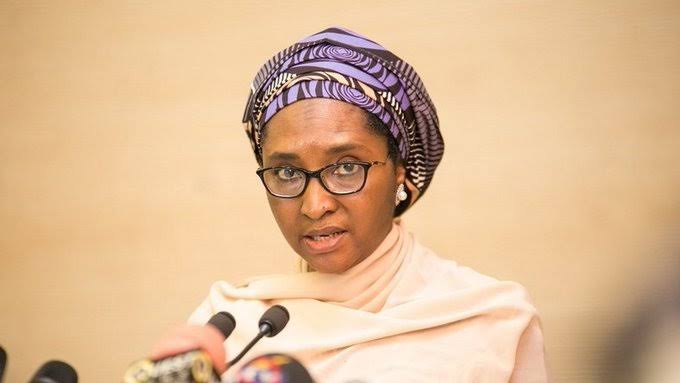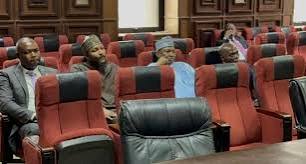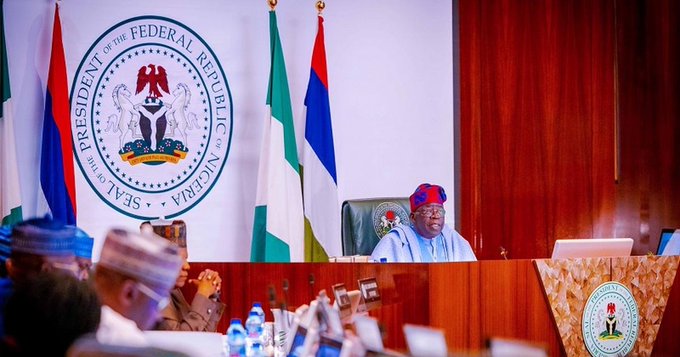The 36 states of the federation have collected N471.9 billion under the $1.5 billion World Bank-assisted States Fiscal Transparency, Accountability and Sustainability (SFTAS) Programme for Results (PforR) to shore up their finances, Mrs Zainab Ahmed, the Minister of Finance, Budget and National Planning, announced on Wednesday in Abuja.
Ahmed said SFTAS had encouraged peer learning and competition among the states and enhanced delivery of good governance.
Speaking at the launch of the states’ charter of the programme at the State House, the minister noted that it would help to sustain fiscal transparency, accountability and sustainability reforms in the states.
In addition, she said it would strengthen domestic revenue mobilization, increase efficiency in public expenditure as well as strengthen debt transparency and sustainability.
The launch of the charter is aimed at sustaining the ideals of fiscal transparency, accountability and sustainability by the governors as well as to help in the implementation and sustenance of reforms in Public Finance Management in the country.
She said:“Indeed, the very high level of political visibility and implementation structures created across the 36 States contributed largely to the successful implementation of the programme over the period 2018 to 2022.
“The programme has instilled fiscal behaviour and standards and facilitated the widespread adoption of good practices in fiscal and public financial management across the states while respecting their fiscal autonomy through preparation of Citizen -based Budgets, timely preparation and publication of Annual Budget and Audited Financial Statement as well as adoption of National Charts of Account.
“Beyond benefitting from the grants, all the 36 states in the Federation have fully domesticated the fiscal reforms in their public financial management system through the adoption of appropriate processes and practices as well as legal and regulatory frameworks which are already yielding positive outcomes.
“I commend President Muhammadu Buhari for introducing laudable and enduring reforms in the Public Finance Management including SFTAS.’’
On audit law, Ahmed disclosed that 28 states had made audit law in line with internationally acceptable standards while all the states had passed the 2020 Audited Financial Statements as at July 31, 2021.
“About 32 states prepared and published Local Governments’ Audited Financial Statements (AFSS) for FY2018, FY2019 and FY2020 including all allocations and actual receipts of State-Local Government Joint Account Allocation Committee (SLJAAC) transfers for each local government.
“All the 36 states prepared Year 2022 budget in line with the National Charts of Account,’’ the minister represented by the Permanent Secretary, Mr Aliyu Ahmed, said.
According to the minister, other achievements recorded through the programme include but not limited to accountability through the deployment of measures such as BVN in the Payroll Systems and implementation of Treasury Single Account (TSA) to plug leakages in the system.
“Many states have been able to increase their IGR significantly by reducing leakages through the implementation of state level Treasury Single Account (TSA), and intensifying efforts in IGR collection. 27 states passed their Consolidated State Revenue Code (CSRC) by 2020 and 18 states were able to record a nominal IGR collection in 2020 that was equal to or higher than that of 2019.
“31 states have also linked BVN to payroll while 13 have adopted the Treasury Single Account while 30 states had conducted biometric registration of at least 90 per cent of their civil servants and pensioners on the payroll and addressed identified payroll fraud.
“In addition, 20 states have shown very strong commitment in establishing institutional arrangements focused on laying foundation for the state property taxation which is a significant potential revenue source.
“29 states have passed Public Procurement Laws and all 36 went ‘live’ on an e-procurement platform by 31 December 2021. This will improve procurement practices to enhance value for money and reduce opportunities for corruption and misuse of public resources, thereby increasing efficiency of public expenditure.
“It has strengthened fiscal sustainability through increased efficiency in spending, and debt sustainability to prevent further fiscal crises and enhance the fiscal space for productive spending aimed at supporting growth and public service delivery. Currently, 33 states have passed State Debt Law,’’ the finance minister stressed.
While lauding Dr Kayode Fayemi, the Chairman of Nigeria Governors Forum and Ekiti Governor, his Sokoto and Edo counterparts, Mr Aminu Tambuwal and Mr Godwin Obaseki, Ahmed said: “The trio have indeed played major roles in institutionalizing SFTAS Programme not only in their states where they recorded outstanding achievements but in all the states of the Federation.
“The speedy adoption of this Charter bears great testimony to their unrelenting efforts in entrenching SFTAS ideals in government processes at the state level.”
Also speaking at the launch, the Permanent Secretary, Mr Ahmed, recalled that SFTAS was introduced in 2015 following the inability of the state governments to paying their workers’ salaries.
“SFTAS has been able to help states in the payment of salaries without allocation from the Federation Account. The federal government had to step in again to bail them out.
“At a time, the federal government stepped back and it could not give out these interventions, or helping the states without making them go through some disciplinary procedures in terms of how they are going to manage their finances, or make their states viable.
“That was how we contacted the World Bank and then we packaged the SFTAS programme in such a way that it will reward good behavior, putting in place good systems in terms of fiscal transparency, procurement, as well as increasing the internally generated revenue (IGR).
“So that going forward, at the end of the interventions, the states on their own will become sustainable,” he said.
In her remarks, the Director General of Debt Management Office (DMO), Mrs Patience Oniha, recalled that in 2016 a framework referred to as the fiscal sustainability framework was adopted collectively by federal and state governments for sub- nationals (states) to introduce a number of measures aimed at improving public financial management.
“We have a Public Procurement Act and as you have heard that concise procurement which is expenditure is a major part of expenditure. We know now that the states have their own laws as well.
“There is compliance in the states, specific country as well as the State Assemblies as required by law,’’ she said.
In his comment, the World Bank Country Director for Nigeria, Mr Shubham Chaudhuri, pointed out that the programme had made states in Nigeria to be more open and transparent about their budgets and increasing their revenue sources.
He expressed the hope that governors would show commitment to accountability and transparency in spending and procurement.
He urged the media and other stakeholders including the civil society to ensure the success of SFTAS at all levels of government.
Read Also: Pres. Buhari inaugurates Aliko Dangote-led Nigeria-End-Malaria Council






































Leave a comment